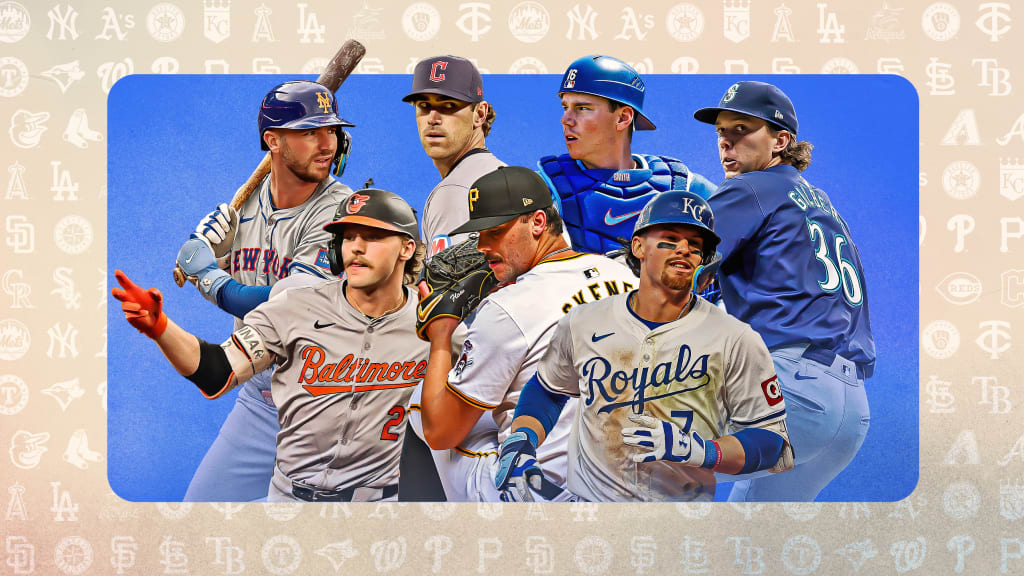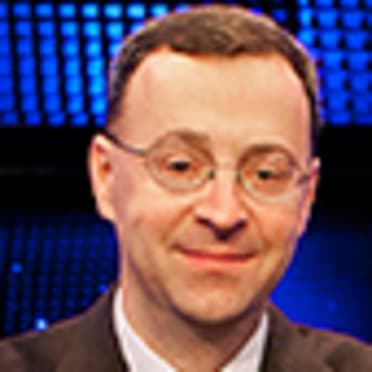
The Draft is the best and most cost-effective way to procure and control talent. It's virtually impossible to compete for postseason berths and World Series championships without identifying, selecting and signing future stars.
With that in mind, we take a look at each team's biggest Draft success in the last decade. Not surprisingly, 18 of the players below were first-round picks, including No. 1 overall choice Paul Skenes. But there were several later-round finds as well, including the slugger who set a rookie record with 53 homers in the second round (Pete Alonso) and a pair of Cy Young Award winners in the fourth (Shane Bieber, Corbin Burnes).
2024 Draft presented by Nike:
Draft Tracker | First-round signings | All-time biggest bonuses
Pick-by-pick analysis: Day 1 | Day 2 | Day 3
Bazzana goes No. 1 | Wake Forest makes history | Mariners nab switch-pitcher | Top 7 Day 1 storylines | Best hauls | Our favorite picks | Famous family ties | Biggest steals | These picks could be new club No. 1's | Picks who could be quickest to bigs | Sons of Manny, Big Papi selected | Complete coverage
Eight of them already have won World Series rings: Andrew Benintendi, Kyle Schwarber, Austin Riley, Will Smith, Jordan Montgomery, Josh Jung, Alex Bregman and Trea Turner. Among that group, only Riley, Smith, Jung and Bregman currently play for the club that drafted them.
Jump to: AL East | AL Central | AL West | NL East | NL Central | NL West
AMERICAN LEAGUE EAST
Blue Jays: Bo Bichette, SS (2016, second round)
After signing for $1.1 million six years ago, the son of Dante Bichette quickly separated himself as a potential plus-plus hitter, winning a Minor League batting title in 2017, and that’s held up in the bigs with a career .290 average since his debut in 2019. Bichette has shown more power than expected from his Draft days too (e.g. his 29 homers in 2021), and his secure place at shortstop has helped the Jays secure three postseason spots since he arrived in The Show.
Orioles: Gunnar Henderson, SS (2019, 2nd round)
Obvious hat tip to No. 1 overall pick Adley Rutschman, but we’ll give Henderson the nod as the second-rounder who currently has more WAR (13.5) than Rutschman (12.9). Both are All-Star starters in 2024 and could go down as one of the greatest 1-2 punches in Draft history.
Rays: Shane McClanahan, LHP (2018, first round/compensation)
Tampa Bay stayed local by taking the University of South Florida southpaw 31st overall with the pick it gained for the loss of Alex Cobb, and it hasn’t looked back since. McClanahan was one of the American League’s most dominant starters following his 2021 debut and has looked the part of a future Cy Young winner, though that journey is currently on pause while he recovers from Tommy John surgery. Potential control issues were thought to make McClanahan a bullpen candidate in the Majors, but the former Bull has improved mightily with his strike-throwing while still showing swing-and-miss stuff with all four of his pitches.
Red Sox: Andrew Benintendi, OF (2015, first round)
After Benintendi topped NCAA Division I with 20 homers and won the Golden Spikes Award as a sophomore, Boston ranked him No. 2 on its Draft board behind only Dansby Swanson and landed him at No. 7 overall. He joined the Red Sox 14 months later and helped them win the 2018 World Series with his bat and glove before going to the Royals in a three-team trade in February 2021. He won't reach the heights once projected for him but did make his first All-Star team in 2022.
Yankees: Jordan Montgomery, LHP (2014, fourth round)
A steady starter and big-game performer at South Carolina, Montgomery fit the same profile in the big leagues. The Yankees helped him improve his velocity and his curveball after drafting him in the fourth round and ended up trading him to the Cardinals at the 2022 Trade Deadline. He helped the Rangers win the 2023 World Series before joining the Diamondbacks as a free agent.
AMERICAN LEAGUE CENTRAL
Guardians: Shane Bieber, RHP (2016, fourth round)
Bieber stood out more with his control than his stuff at UC Santa Barbara, which he led to its first-ever College World Series appearance in 2016. He has significantly improved the velocity on his fastball and the quality of his breaking pitches as a pro, sandwiching a pair of All-Star nods in '19 and '21 around an AL Cy Young Award and pitching triple crown in '20. He's currently sidelined following Tommy John surgery in April.
Royals: Bobby Witt Jr., SS (2019, first round)
Five years after he went second overall to Kansas City, Witt has become the no-doubt face of the franchise and will remain so for a long time after signing an 11-year, $288.8 million extension this past offseason. (The deal could push to 14 years with options.) After early inconsistencies on both sides of the game, the shortstop has become one of the game’s best five-tool talents and particularly stands out for his power and speed with exit velocities and sprint speeds that rank among the best in the game.
Tigers: Riley Greene, OF (2019, first round)
No. 1 overall picks Casey Mize and Spencer Torkelson have been underwhelming for various reasons in the Majors, so instead we turn to a fifth overall pick in Greene. Consistently healthy in 2024, the outfielder is headed to his first All-Star Game thanks to a strong eye at the plate, burgeoning power and solid defense in left field. Still only in the midst of his age-23 season, Greene will be a key part of Detroit’s next contender in the AL Central.
Twins: Bailey Ober, RHP (2017, 12th round)
More recent first-rounders Brooks Lee and Walker Jenkins will likely surpass him at some point, but it’s hard to look past what this 6-foot-9 finesse right-hander has done in the big leagues. He throws strikes with four pitches and is a mainstay in the Twins’ rotation now, walking almost no one and missing more bats than you’d expect.
White Sox: Carlos Rodón, LHP (2014, first round)
The best college left-hander since David Price, Rodón had been the strong favorite to go No. 1 overall since his freshman season at North Carolina State in 2012, but he fell to No. 3 after becoming too reliant on his wipeout slider and not dominating as consistently as a junior. He still received the largest bonus in the 2014 Draft ($6,582,000) and earned consecutive All-Star berths in 2021-22, though half of his 10 seasons in the Majors have been curtailed by injuries. He's currently with the Yankees after signing a six-year deal in December 2022.
More from MLB Pipeline:
• Top 100 prospects | Stats | Video | Podcast | Complete coverage
AMERICAN LEAGUE WEST
Angels: Zach Neto, SS (2022, first round)
When the Angels took him No. 13 overall in 2022, they were hoping they were getting an advanced college bat who could move quickly, but there’s no way they could have known he’d establish himself this fast. After just 44 total games in the Minor Leagues combined in 2022 and 2023, Neto made his debut on April 15 in 2023 and hasn’t looked back, holding his own as the club’s everyday shortstop.
Astros: Alex Bregman, SS (2015, first round)
Bregman starred for three years at Louisiana State before going No. 2 overall in the 2015 Draft, though it probably still rankles him that he wasn't the top choice by the D-backs, who opted for fellow Southeastern Conference shortstop Dansby Swanson. Bregman paid almost immediate dividends, cracking Houston's lineup four months into his first full pro season, and won two World Series championships, four pennants and two All-Star Game berths in his first seven full years in the Majors.
A’s: Matt Chapman, 3B (2014, first round)
Chapman has won four Gold Gloves, finished in the Top 10 in MVP voting twice and made an All-Star team. He’s now hitting homers and playing plus defense in his first season with the Giants after two years with the Blue Jays.
Mariners: Logan Gilbert, RHP (2018, first round)
This could end up being a really interesting debate between Gilbert, the 2018 first-rounder, and George Kirby, their top pick in '19. Gilbert, the Stetson product, gets the nod for now, with his 9.8 WAR and earning his first All-Star selection in 2024, though Kirby isn’t far behind at 7.3.
More from MLB Pipeline:
• Top 100 prospects | Stats | Video | Podcast | Complete coverage
Rangers: Josh Jung, 3B (2019, first round)
The most career value amassed by any Rangers Draft signee in the last decade belongs to Dylan Moore, a 2015 seventh-rounder from Central Florida. We're going with Jung, the No. 8 overall choice in 2019 out of Texas Tech, based on upside. Last season, he became Texas' first rookie ever to start an All-Star Game and excelled in the playoffs as the franchise won its first World Series title. Evan Carter (2020, second round) and Wyatt Langford (2023, first round) will battle him for top Rangers honors in the years to come.
NATIONAL LEAGUE EAST
Braves: Austin Riley, 3B (2015, CB-A)
Most of the scouting industry preferred Riley as a pitcher, so the Braves get extra credit for taking him as a position player and letting him hit. He won his first Silver Slugger Award in 2021, his second in 2023, and finished top 10 in MVP voting three years in a row while being named to two All-Star teams.
Marlins: Brian Anderson, 3B/OF (2014, third round)
While the Marlins haven't drafted a true star since the late José Fernández in 2011, Anderson has returned nice value for a third-rounder. The Arkansas product finished fourth in National League Rookie of the Year balloting in '18 and slammed 31 homers in his first two full big league seasons, but he has been waylaid by injuries since.
Mets: Pete Alonso, 1B (2016, second round)
If you’re going to take a righty-righty college first baseman in the first few rounds, that guy is going to have to hit a good amount to justify the pick. Two years after he moved from Florida to the Mets, Alonso led the Minor Leagues with 36 home runs between Double-A and Triple-A in 2018. One year after that, he led the Majors with 53 dingers and was named the NL Rookie of the Year. The former Gator continues to be one of the Majors' best right-handed sluggers and has already been well worth his $909,200 bonus out of the Draft.
Nationals: Jesús Luzardo, LHP (2016, third round)
Washington selected the Florida prep left-hander in the third round and went way above slot to sign him for $1.4 million, only to trade him to the A’s in a deal for Sean Doolittle and Ryan Madson 13 months later. Now closer to home in Miami, Luzardo has settled in as a key member of the Miami rotation when healthy, thanks to a mid-90s fastball and impressive slider and changeup. Golden Spikes Award winner and 2023 No. 2 overall pick Dylan Crews could take over this spot in time as he sits one level below the Majors as of July.
Phillies: Aaron Nola, RHP (2014, first round)
The former All-Star and Cy Young Award candidate had a bounce-back year in 2022, finishing fourth in Cy voting, leading the Majors with his 8.10 K/BB ratio, and he’s turning in another solid campaign in 2024. That’s not new, as he’s amassed 9.9 K/9 and walked just 2.3 per nine in his career en route to a 33.2 WAR.
NATIONAL LEAGUE CENTRAL
Brewers: Corbin Burnes, RHP (2016, fourth round)
The 2016 Draft has produced a pair of Cy Young winners already. Both of them have come from the fourth round. One was Shane Bieber. The other was Burnes, who took home NL honors in 2021. The Saint Mary’s product threw 92-95 mph in college and on the Cape but might have been dinged a little for his lack of plus secondaries. His slider and curveball are significant swing-and-miss pitches now, complementing a mid-90s cutter that he throws around 45 percent of the time. Burnes joined the Orioles in a blockbuster deal last offseason, netting Milwaukee impressive rookie Joey Ortiz and left-hander DL Hall in the process.
Cardinals: Zac Gallen, RHP (2016, third round)
The Cardinals have drafted and developed their fair share of position players in the last decade, including rookie sensation Masyn Winn, but the pick that stands out most is a pitcher who got away. Gallen, a right-hander out of the University of North Carolina, lasted 1 1/2 seasons in the St. Louis system before moving to Miami as part of a four-player return (which included Sandy Alcantara) for Marcell Ozuna in December 2017. Now with Arizona, Gallen has been one of the National League’s best starters over the past three seasons and finished in the top five in NL Cy Young voting in both 2022 and 2023.
Cubs: Kyle Schwarber, OF/DH (2014, first round)
Chicago had Schwarber No. 2 on their 2014 Draft board behind Brady Aiken because they loved his power and hitting ability, but the rest of the industry didn't hold him in such high regard. That enabled the Cubs to sign him for $1.5 million under slot at No. 4 and use the savings to give seven-figure bonuses to three high school pitchers in the fourth through sixth rounds, including Justin Steele and Dylan Cease. They hit on Schwarber too, as he mashed his way to Wrigley Field 12 months after the Draft and helped Chicago end its 108-year World Series championship drought in 2016. A two-time All-Star, he led the NL with 46 homers in 2022 and his 263 career blasts are 96 more than any other 2014 draftee.
Pirates: Paul Skenes, RHP (2023, first round)
Who else? Skenes has somehow managed to exceed the ridiculously high expectations placed on his shoulders as the No. 1 overall pick in the 2023 Draft and being considered the best pitching prospect since Stephen Strasburg. He made his big league debut in May and has been so dominant, he was named to the National League All-Star Team.
Reds: Andrew Abbott, LHP (2021, second round)
A reliever for his first three years at Virginia, Abbott’s move to the rotation in 2021 helped improve his stock considerably. He might go down as one of the better senior signs as he settled into the big league rotation pretty much the minute he made his debut in June of 2023 and has amassed 5.9 WAR in just over one full season.
NATIONAL LEAGUE WEST
D-backs: Corbin Carroll, OF (2019, first round)
Slightly overlooked in 2019 due to his lack of size, the 16th overall pick rose through the ranks to become the 2023 NL Rookie of the Year and help Arizona to its first World Series appearance since 2001 last season. The outfielder is in the midst of a serious downturn in 2024 – and if you want to argue Dansby Swanson is deserving of this spot, you'd have a legitimate case – but at his best, Carroll is still one of the fastest and most dynamic players in the sport. Considering he’s only 23, Carroll has time on his side to ride out this storm and get back to his superstar potential.
Dodgers: Will Smith, C (2016, first round)
After batting .235 in his first two seasons at Louisville, Smith blossomed into the best all-around catcher in the 2016 Draft yet somehow lasted 32 picks. He has lived up to his billing by starring on both sides of the ball for the Dodgers, helping them win the 2020 World Series and getting All-Star recognition in each of the past two seasons.
Giants: Bryan Reynolds, OF (2016, second round)
Reynolds had the tools and track record of performance at Vanderbilt to merit going in the first round, but he inexplicably lasted 59 picks in 2016. The Giants didn't hang on to him, however, spinning him to the Pirates in the Andrew McCutchen trade in January 2018. He has been Pittsburgh's best player ever since and gained All-Star recognition in 2021 and 2024.
Padres: Trea Turner, SS (2014, first round)
The pick and trade that led to a new rule. San Diego selected Turner 13th overall out of NC State in 2014 but included him as a player to be named later in a three-way trade with the Rays and Nationals that December. Because rules stipulated that players couldn’t be moved within one year of their Draft date, Turner couldn’t swap his Padres hat for a Nationals one until June 2015. He debuted for Washington that August after his hit tool and speed proved too good for the Minors, and he’s been one of the game’s best shortstops ever since, netting an 11-year, $300 million contract from the Phillies because of his history of exhibiting quality hitting ability and speed. Top 2021 picks Jackson Merrill and James Wood have ways to go to catch Turner but have immense potential.
Rockies: Kyle Freeland, LHP (2014, first round)
Talk about a local kid done good. The Denver native went in the first round after he went from the Colorado high school ranks to the University of Evansville and was rewarded for his efforts in the Rockies’ rotation with a five-year contract extension in 2022. He’s been a consistent starter who has a 17.4 WAR to date.


